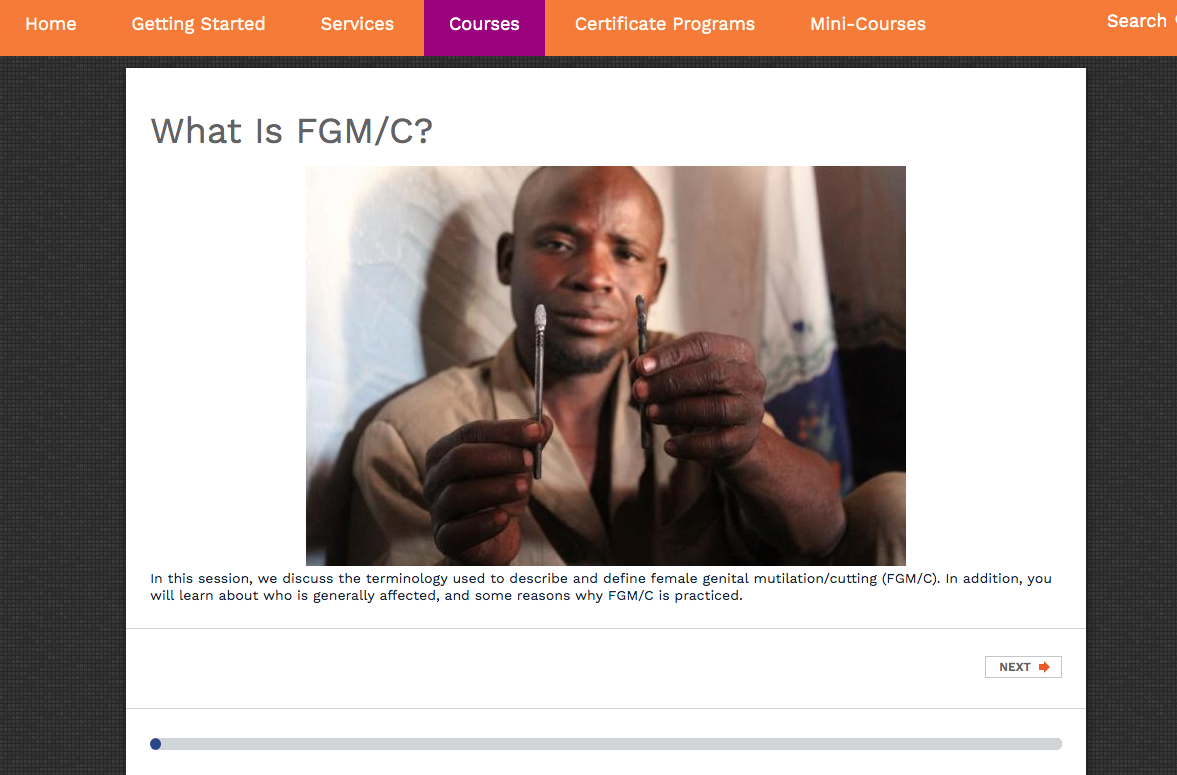Health care provider toolkit
Welcome to the FGM/C health care provider toolkit, a centralized database with the latest information on how to identify female genital mutilation/cutting and common health problems that arise from it. Get tips on how to discuss this sensitive topic with your patients, learn about long-term mental health consequences, and much more.
The toolkit is the product of a collaboration between The George Washington University and RAHMA, a Washington, D.C.-based non-profit organization.
- General knowledge quiz
-
Take our quiz. Test your knowledge on FGM/C.
Quiz sources:
- Educational competency areas
-
There are 17 areas suggested by Atkinson & Geisler (2019) for educational competencies for health care providers to improve care for women and girls that have undergone FGM/C. Our toolkit aims to address and provide information/resources related to these 17 areas:
1. Definition of FGM/C, awareness of cultural practices, and their prevalence.
2. Knowledge about anatomy, physiology, and sexuality of women with FGM/C.
3. Correct identification and documentation of the types of FGM/C in the adult and pediatric populations.
4. Screening tools for identification of women/girls who have undergone FGM/C and for identification of girls who are at risk.
5. Clinical management of FGM/C complications, including obstetrical issues; urological and gynecological issues; and psychological, psychiatric, and behavioral sequelae.
6. Understanding of the complex and varied sexual health issues/concerns among FGM/C women and cultural skills in discussing sexuality.
7. Development of professional attitudes that are nonjudgmental and do not contribute to the stigmatization of women who have undergone FGM/C.
8. Provision of holistic, multidisciplinary, nondiscriminatory, culturally sensitive, and trauma-informed care, with a nuanced approach to expectations about FGM/C women’s sense of femininity and their sexual functioning.
9. Counseling tools for requests for reinfibulation postdelivery.
10. Knowledge about and counseling skills around surgical repair of external genitalia, including clitoral reconstruction.
11. Understanding of legal prohibitions established by federal and state laws, and mandatory reporting requirements.
12. Understanding of the range of ethical dilemmas raised by the practice and guidelines for resolving them.
13. Knowledge of resources and services for ongoing social support and group therapy/support.
14. Best practices for the prevention of FGM/C regarding both the identification of at-risk girls and broader engagement with practicing communities.
15. Best communication practices with families around the legal prohibition of FGM/C and preemptive counseling of affected women to prevent FGM/C being undertaken in the girls at risk in the family.
16. Best communication practices and education strategies for engaging with immigrant communities.
17. Engaging in advocacy and partnering with organizations engaged in community-based activities.Note: These competency areas are directly from the article, but the term FGC has been replaced with FGM/C for consistency purposes across the toolkit.
- Training Course
-
Here is a training course from Global Health Learning Center for explaining successful and failed health interventions in relation to FGM/C:
https://www.globalhealthlearning.org/course/female-genital-mutilation-cutting-fgm-c.
- Workbook for health care provider toolkit


